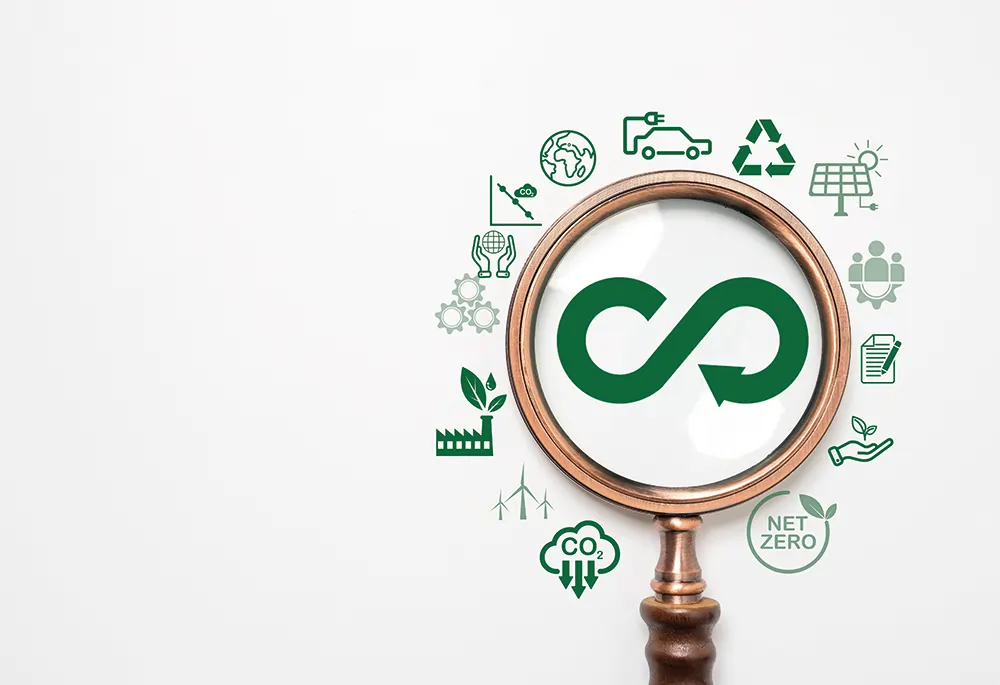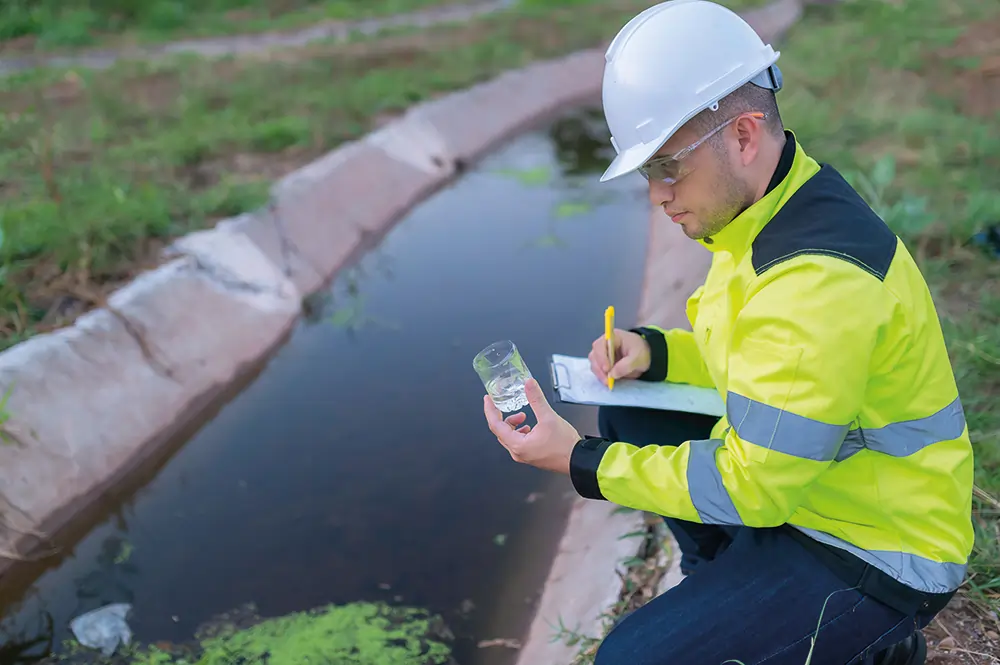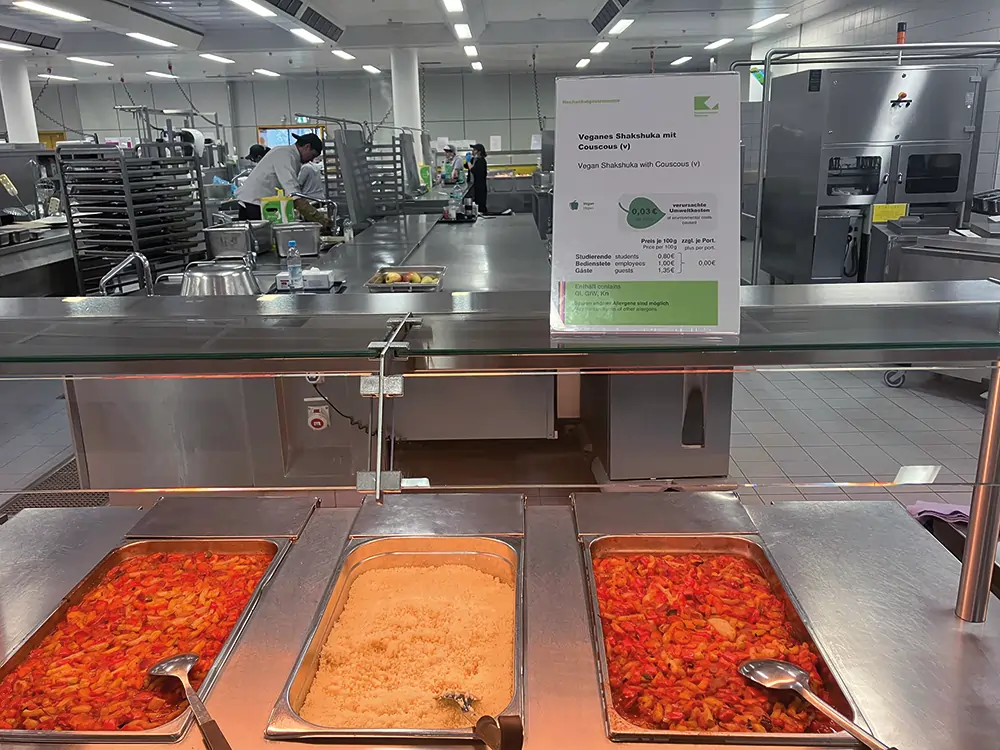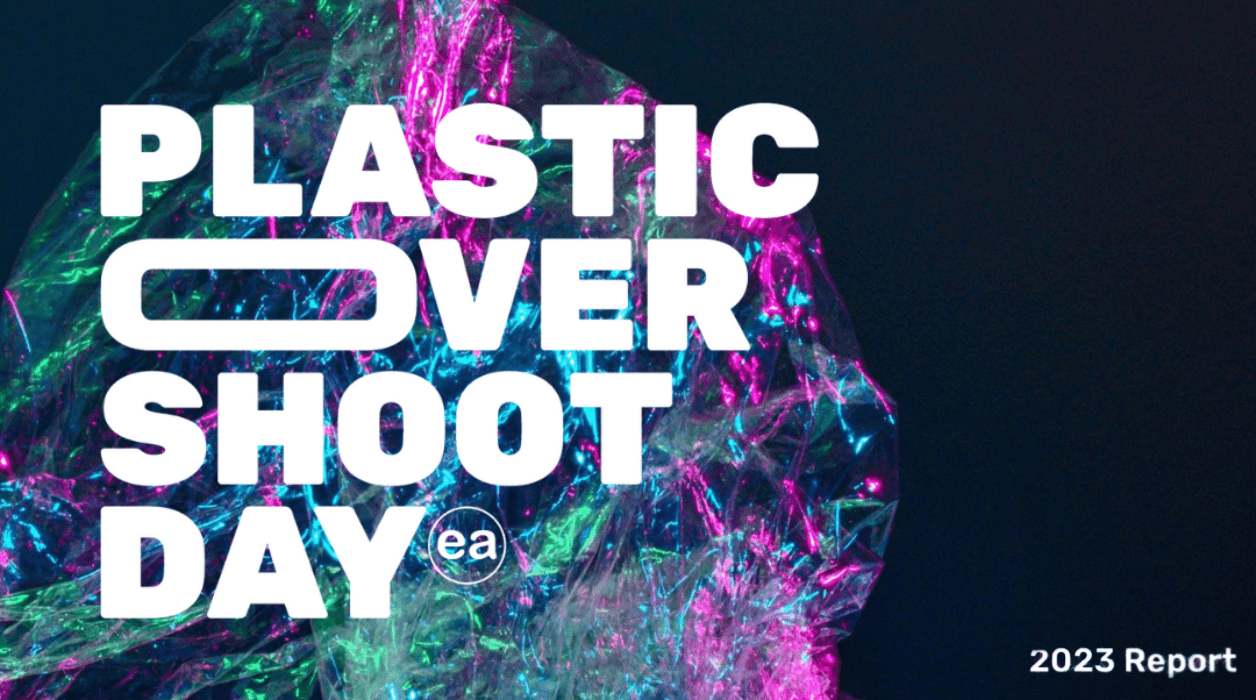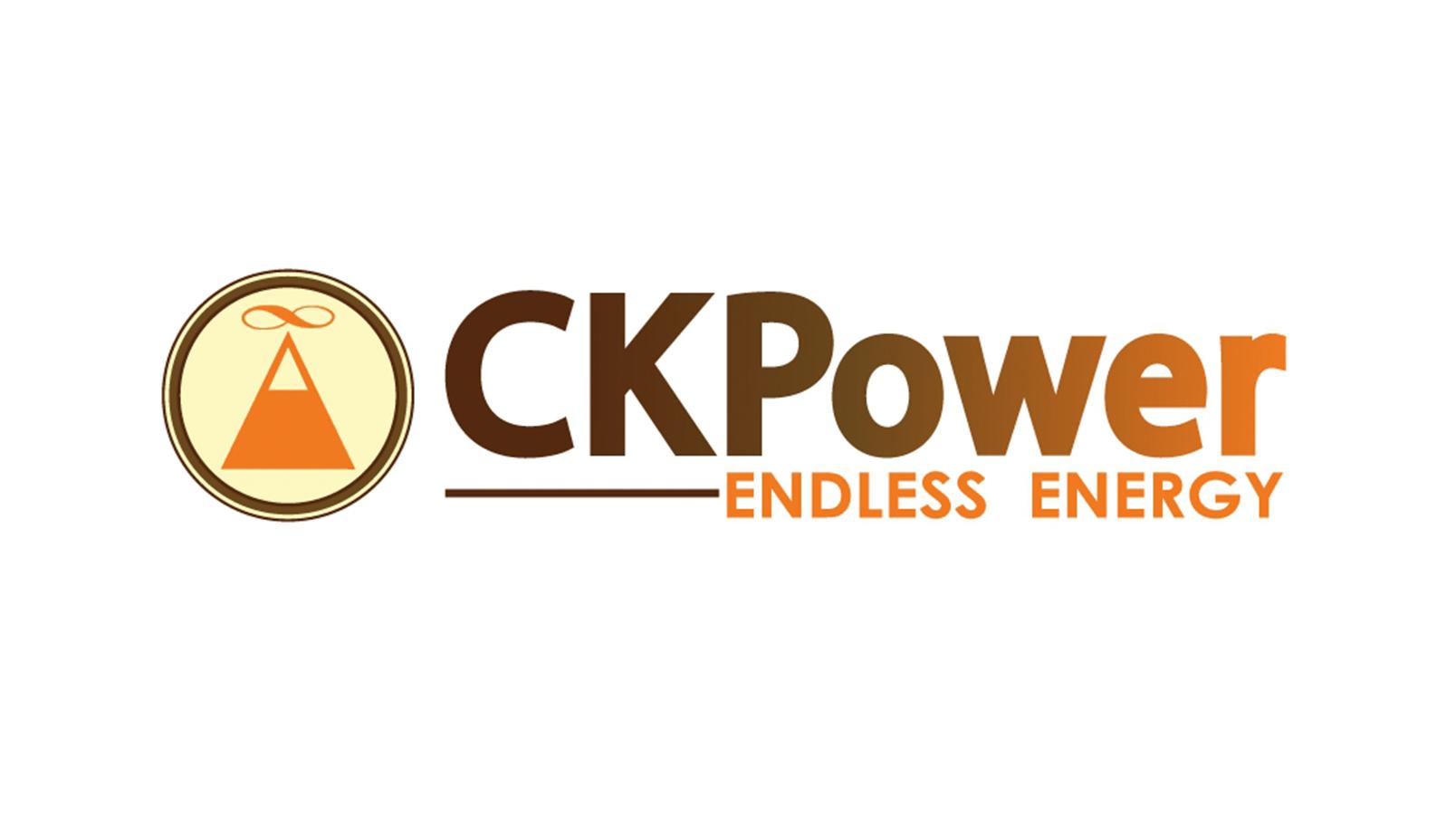Designed for life

John E. Kaye

Europe’s luxury brands are looking to green tech to boost customer loyalty and become compliant with new regulations, says Debbie Shakespeare of Avery Dennison
European luxury brands lead the world. And today they have a neat new communications channel up their sleeves: connected products.
Garments, footwear and accessories can now tell their own stories, thanks to Digital ID technology, and the advent of Digital Product Passports (DPPs). In store, a shopper can use their smartphone to scan a QR code on the care label of a coat, for example. This will open a dedicated app or webpage and they’ll find out exactly where the coat was made, the factory working conditions, the type and source of the textiles used, and potentially even the amount of carbon emitted to manufacture it. Any “green promises” can be thoroughly substantiated, as can the garment’s brand authenticity. Equally, a shopper buying an artisan Italian leather handbag can scan to watch a video of that bag being made, see how to get the zip mended when it breaks, or the lining replaced. The future of fashion is this level of transparency and digital engagement, and the tech is available today to make it happen.
Regulation is pushing the fashion industry in this direction. Most notably, the EU’s Ecodesign for Sustainable Products Regulation (ESPR) will be required for all textile products by 2030. A key element of the ESPR is the Digital Product Passport, which will make product-specific and sustainability information accessible via a digitally enabled data carrier such as a QR code or NFC (near field communication) tag.
The ESPR also includes a direct ban on the destruction of unsold goods, alongside annual reporting of unsold goods, therefore brands will need to support this requirement by making available data relating to waste in their supply chain.
While this is not a customer-facing issue, it will tie into retailers’ need to track obsolete unsold inventory. DPPs make tracking and reporting easier, and a platform hosting all the data, like Avery Dennison’s atma.io connected product cloud, can manage information relating to unsold goods.

Connecting directly with consumers
Currently, DPPs tend to be considered by retailers and brand owners as a technological tool to meet compliance with the new EU regulations.
However, enlightened luxury brand owners are thinking differently. Yes, they are arranging their manufacturing and supply chain data so that consumers and regulators can access it through DPPs stored on cloud platforms, in readiness for impending changes. But they are also harnessing DPPs to engage consumers with rich information that will build brand appreciation and loyalty.
A great example is Swijin Swimwear, the Swiss swimrun-wear brand which is enhancing the customer experience through smart labels on clothes. In a recent pilot, three garments from the SwimRunner range – a bra, sports brief, and biker shorts – were digitally connected, having a scannable QR code on the heat transfer care labels, powered by the atma.io connected product cloud.
By scanning and landing on a custom-built experience, consumers learnt about their item’s history, its sustainability story, guidance on garment care, and the best way to dispose of it after use.
French fragrance house Bastille Parfums is also making use of RFID (Radio Frequency Identification) tags and QR codes on boxes to enlighten customers on its sustainable mission. Customers can scan a QR code on a Paradis Nuit fragrance box for a list of every natural and synthetic ingredient within the bottle, as well as information about the origin of ingredients, what they smell like, and the date of bottling. This level of transparency is ground-breaking in the fragrance sector.
Both these brands have demonstrated that connecting with customers digitally through products gives them an exciting new channel for brand storytelling. They are successfully prolonging engagement with customers long after the purchase was made, supporting sustainable consumerism, and offering a window into the ethos and aspirations of the brand.
Unlocking the circular economy
Eco-aware consumers can learn how to give their luxury item a second life, or recycle once it’s no longer being worn. If the original retailer has a take-back scheme, the coat or dress owner can find out how that works via the Digital ID, and perhaps claim a coupon for returning the item. Resale becomes easier and more professional because authenticity can be assured via the DPP. All these information feeds, delivered via a DPP, promote emerging models of circularity, which are pivotal in our journey to net zero.
Research confirms that consumers are ready to use DPPs. A survey of 6,300 respondents, commissioned by Avery Dennison, found shoppers are highly receptive to digital labels on garments, making use of QR codes, RFID, and NFC technology, for product insight and interaction with brands pre-and post-purchase.
For instance, 60% of fashion shoppers globally see the value in scanning a QR code on a garment with their smartphone to understand proper care. Further, 71% of respondents globally state fashion brands being transparent about their manufacturing practices is important to them.
The possibilities for brands are endless, with luxury leading the charge. After all, high value products tend to engender emotional connections for the people who invest in them, and are more likely to be designed for longevity. Linking from a garment to a digital information portal can help customers access warranties and authenticity certificates, check on care details, tap into styling suggestions, or watch videos on related products.
Digital storytelling and consumer education through connected garments opens a world of possibilities, above and beyond achieving ESPR compliance. Today we’re on chapter one, but there are many more to come. And for ambitious European luxury brands navigating the fiercely competitive global marketplace, embracing digital connectivity now is a surefire way to build brand kudos for the future.
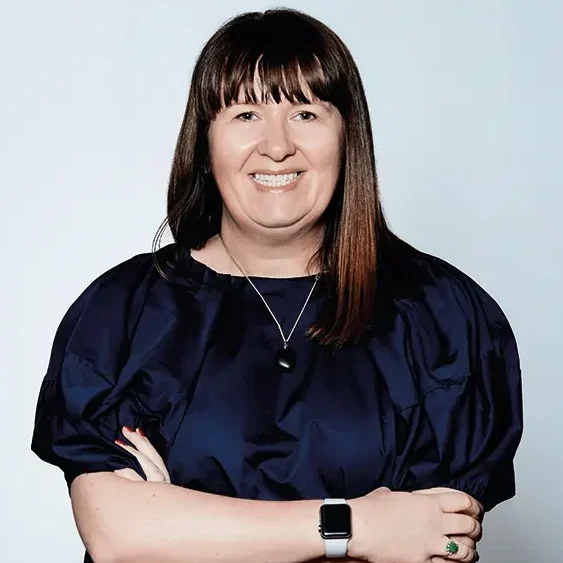
About the author
Debbie Shakespeare, Senior Director, Sustainability at Avery Dennison. In her role overseeing Sustainability and Compliance, Debbie ensures Avery Dennison is on track to deliver on its 2030 goals and holds its value chain to appropriate environmental and social sustainability standards. www.averydennison.com
RECENT ARTICLES
-
 Jersey builds on regulatory strength to stay globally competitive
Jersey builds on regulatory strength to stay globally competitive -
 Why hybrid energy systems are set to power the continent
Why hybrid energy systems are set to power the continent -
 ees Europe: The rise of large-scale storage systems
ees Europe: The rise of large-scale storage systems -
 From reputational risk to competitive advantage
From reputational risk to competitive advantage -
 Take your business success full circle
Take your business success full circle -
 Designed for life
Designed for life -
 Is your ESMS fit for purpose?
Is your ESMS fit for purpose? -
 Digitally enable your ESG solutions
Digitally enable your ESG solutions -
 Afore SURA - The journey to sustainable investment
Afore SURA - The journey to sustainable investment -
 ESG at IDFC FIRST Bank
ESG at IDFC FIRST Bank -
 Takeaways from eco food study
Takeaways from eco food study -
 It’s all about sustainability
It’s all about sustainability -
 Invest in a Greener Tomorrow with Westbrooke Associates
Invest in a Greener Tomorrow with Westbrooke Associates -
 Q&A with Cifi Asset Management's Ricardo Rico, Head of Funds & Javier Escorriola, Managing Partner
Q&A with Cifi Asset Management's Ricardo Rico, Head of Funds & Javier Escorriola, Managing Partner -
 The present calls for sustainable investments, and CIFI has heard that call
The present calls for sustainable investments, and CIFI has heard that call -
 The power to transform tomorrow
The power to transform tomorrow -
 UK to mismanage quarter of a million tonnes of plastic waste this year
UK to mismanage quarter of a million tonnes of plastic waste this year -
 How can visionary design save the world?
How can visionary design save the world? -
 Interview with Thanawat Trivisvavet, Managing Director of CKPower
Interview with Thanawat Trivisvavet, Managing Director of CKPower -
 Elsewedy Electric - Powering progress
Elsewedy Electric - Powering progress -
 Thailand’s CKPower leads sustainable business model
Thailand’s CKPower leads sustainable business model -
 It’s time to focus on the ‘S’ in ESG
It’s time to focus on the ‘S’ in ESG -
 The seven competencies of ESG leaders
The seven competencies of ESG leaders -
 Why businesses must begin their net zero journey now
Why businesses must begin their net zero journey now -
 Every drop of the ocean is connected - Ocean Bottle
Every drop of the ocean is connected - Ocean Bottle





